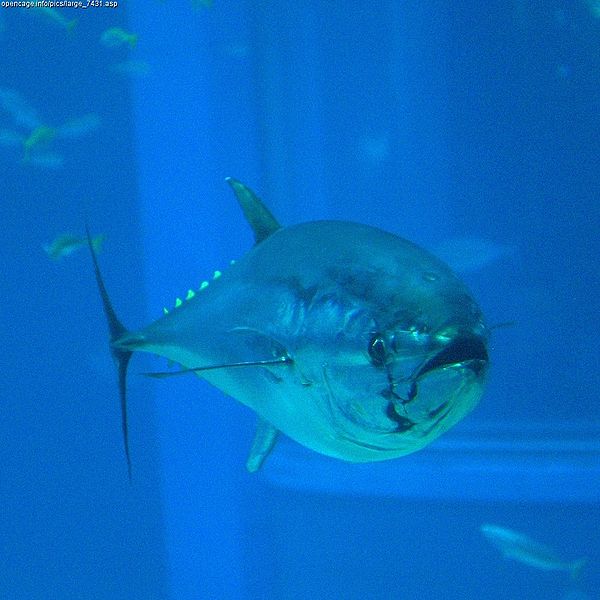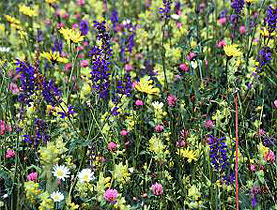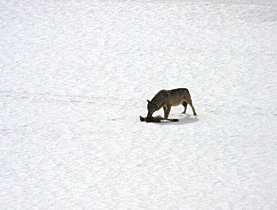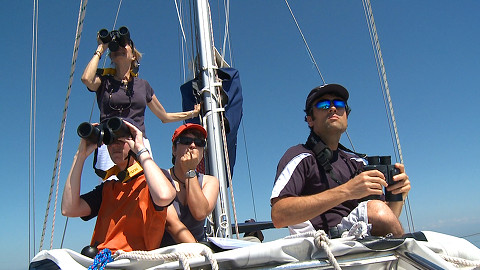Swiss support trade ban on bluefin tuna

The bluefin tuna, the prized sushi delicacy, is under consideration for special protection at the CITES species meeting in Doha – although not every country agrees.
Swiss delegation co-leader Mathias Lörtscher told swissinfo.ch that Switzerland supported a ban on the international commercial trade in the fish, whose numbers have dropped drasticallly.
In 1997 there were an estimated more than 200,000 tonnes of the massive tuna in the east Atlantic Ocean and Mediterranean. By 2007 this had fallen to under 80,000 tonnes.
The bluefin is just one of the species being discussed by the 175 countries attending the Convention on International Trade in Endangered Species of Wild Fauna and Flora (CITES) conference, which is being held in Qatar’s capital city from March 13-25.
At the meeting, held every three years, nations decide which species should be added on – or taken off – one of three CITES appendices or special protection lists. Appendix one offers the most protection.
Lörtscher is the head of Switzerland’s CITES management authority. He will also be blogging about the decisions made at the conference.
swissinfo.ch: What are the main topics at the CITES conference?
Mathias Lörtscher: We have over 40 proposals for listing species on the appendices and among these are several species that are of commercial interest for fisheries. This is a development within CITES, that more and more subspecies of fish and also timber are being listed.
swissinfo.ch: Is this because there has been, for example, overfishing and overfelling?
M.L.: There are some criteria which make a species more likely to be put into the appendices. It must be internationally traded in big numbers, populations must have gone down considerably and international trade has an influence.
One species due to be discussed, that has already been causing some debate, is the bluefin tuna. This is a species whose population has gone down dramatically according to scientific data and the proposal is to put it into appendix one, which would effectively mean that the fish could not be traded internationally anymore. Switzerland supports this ban.
There are certain parties which are very much in disagreement with the proposal, especially Japan, which buys around fourth-fifths of the bluefin tuna catch to make sushi.
swissinfo.ch: There will also be a continuation of the ongoing debate about ivory.
M.L.: Ivory is a topic that has dominated the conferences for many years. It’s because in Africa there are countries where the populations of elephants are growing and even becoming problem animals and others where the populations are dwindling.
The countries that take care of their populations so that they can grow want to be able to use the ivory from animals that have died naturally or had to be killed because they were problem animals. But countries with dwindling populations do not want this trade because they are afraid it would have an influence on poaching activities in their countries.
swissinfo.ch: So what position does Switzerland take on the issue?
M.L.: There is a CITES programme that looks at whether the sale of ivory has any influence on poaching activities and so far this programme hasn’t shown any relation between sales of ivory and a subsequent rise in poaching. We are of the opinion that if countries take good care of their populations, they should be able to trade that ivory as long as the revenues go back into conservation of the elephants and to the local people who live with these elephants.
swissinfo.ch: It’s the United Nations Year of Biodiversity in 2010. Does this bring an added dimension to the conference?
M.L.: It’s on the meeting’s logo but there isn’t a special topic because CITES has, for more than 30 years, been undertaking biodiversity protection through control of international trade and sustainable use of resources.
swissinfo.ch: What does Switzerland hope will be the outcome of the meeting?
M.L.: We hope that it will be a fair debate and that the decisions are in the interest of the species concerned – so not made for economic and political reasons but really for the protection of those species that need it.
Isobel Leybold-Johnson, swissinfo.ch
CITES (the Convention on International Trade in Endangered Species of Wild Fauna and Flora) was adopted in 1973 to regulate international wildlife trade and to ensure that it remains at a sustainable level. It has 175 parties.
Switzerland signed up at the beginning and is the depositary state of the agreement. Its position is that it supports the sustainable use of natural resources but also supports bans where species have to be protected.
Switzerland will bring a few proposals of its own to the conference. Theise includes promoting the use of electronic permits so that legal trade can be carried out in a fast and secure way.
It would also like the scientific committee on plants to look at certain species of epithetic cacti which are not traded or threatened by international trade with a view of taking them off the appendices.
CITES provides three regulatory options:
Appendix 1: animals and plants are banned from international commercial trade except in very special circumstances. It contains around 530 animal species and a little over 300 plants. Included are: all the great apes, big cats such as cheetahs, the snow leopard and tigers, all sea turtles as well as some cacti and orchids.
Appendix 2: commercial international trade is permitted but is strictly controlled on the basis of CITES permits. Covered are 4,460 animal and 28,000 plant species, including all primates, cats, cetaceans, parrots, crocodiles and orchids not listed in appendix 1.
Appendix 3: all species protected within the borders of a member country. This means that a country calls on others to help it regulate trade of its protected species by making the issuing of a certificate of origin necessary for trade. 290 species are listed.

In compliance with the JTI standards
More: SWI swissinfo.ch certified by the Journalism Trust Initiative






You can find an overview of ongoing debates with our journalists here. Please join us!
If you want to start a conversation about a topic raised in this article or want to report factual errors, email us at english@swissinfo.ch.